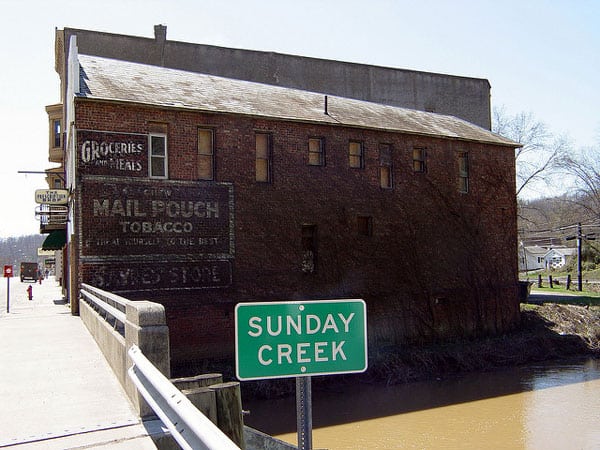
July 25, 2018; Columbus Dispatch
The Sunday Creek Watershed Group, a project of Ohio-based Rural Action, has spent 20 years working to clean up the Sunday Creek watershed in the southeastern corner of the state. With partners from government agencies, universities, and other nonprofits, $9 million has been spent on restoration work that includes “treatment systems that neutralize the highly acidic, orange-colored, rotten-egg-smelling water” that spills from the areas abandoned mines. As a result, the watershed has seen the return of 17 species of fish and other aquatic life.
This success story looked like it was in jeopardy when Oxford Mining Company filed permit applications to begin operating a surface mine in the area. As NPQ reported back in March, the rollback of EPA regulations appeared to have given mining in the area a new lease on life. But on July 13th, a regional environmental manager notified the Ohio EPA that the company was suspending its plans “because of ‘steadily increasing’ costs as well as ‘problems and uncertainties’ associated with obtaining the necessary water-discharge permit form the agency,’” according to the Columbus Dispatch.
Roxanne Groff, a local resident who helped lead the opposition to the new mine, told reporter Mary Beth Lane, “All of us are ecstatic.”
Sign up for our free newsletters
Subscribe to NPQ's newsletters to have our top stories delivered directly to your inbox.
By signing up, you agree to our privacy policy and terms of use, and to receive messages from NPQ and our partners.
The plan for the mine included discharging waste into Johnson Run, which flows directly into Sunday Creek. “Not only were they going to destroy a pristine valley that had never been mined,” said Groff, “they were going to re-pollute the Sunday Creek watershed that has been reclaimed.”
Michelle Shively, Rural Action’s Sunday Creek Watershed coordinator, attributed the victory to the community. People packed public hearings and made their concerns known to public officials. Ohio EPA, despite the lack of concern for clean water and air at the federal level, appears to have done its due diligence, seeking additional field data from the company and reviewing water quality data from Rural Action.
However, new coal mines and the inevitable pollution of nearby lands and streams remains a threat for Appalachian Ohio and other coal mining regions. Oxford Mining still hopes to open surface mines in Ohio and has applied for a surface mine on 545 acres of the Perry State Forest in nearby Perry County. Other mine companies are also hoping to expand their footprints. To help bring back the mines, the Trump administration has proposed repealing the Clean Power Plan, reversed the stream protection rule, decimated the EPA staff, and upended climate science research. Whether these efforts can make coal competitive with cheap natural gas and a growing green energy sector remains to be seen. In the meantime, nonprofits will need to use their expertise—and the power of the people—to fight back.—Karen Kahn













